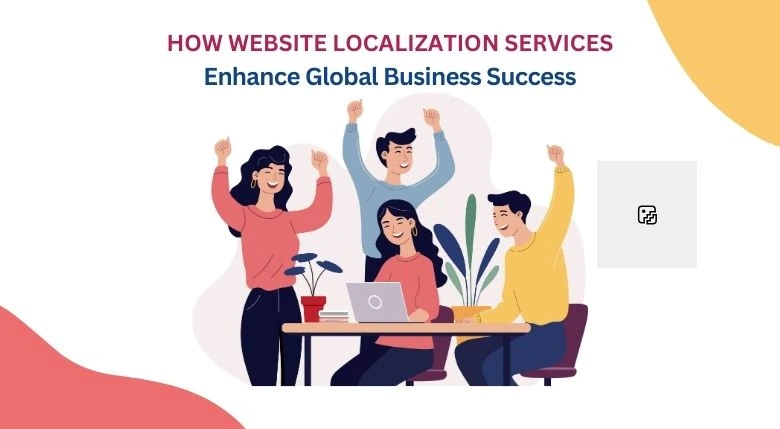 Due to globalization and digitalization, a company based in the United Kingdom can now sell products to customers in South Korea with a simple click of a button. But as businesses are expanding their reach, they frequently face severe challenges in terms of communication and engagement with global audiences that come from diverse linguistic and cultural backgrounds. This is where website translation and localization services come into play.
Due to globalization and digitalization, a company based in the United Kingdom can now sell products to customers in South Korea with a simple click of a button. But as businesses are expanding their reach, they frequently face severe challenges in terms of communication and engagement with global audiences that come from diverse linguistic and cultural backgrounds. This is where website translation and localization services come into play.
What is Website Localization?
Website localization refers to the process of adapting a website so that it fits into the linguistic, cultural, and functional needs of a specific region or country. It includes modifying a website’s content, design, and functionality to resonate with the target demographics’ culture, language, and preferences.
It might also pique your interest to explore the challenges, and their solutions associated with localization. If you want to learn more, you can read this interesting web blog on Challenges of Localization and How to Overcome.
Why Localizing Websites is Important for Businesses That Want to Go Global?
Data on global Internet usage shows that as of 2024, over 5.18 billion people use the Internet. This accounts for nearly 65% of the global population. The users come from different linguistic backgrounds and speak different languages. Therefore, businesses that want to succeed in the international marketplaces should tailor their websites to suit the needs of diverse customers.
Steps Involved in Website Localization
-
- Market research: Understanding the target audience’s language, culture, and buying pattern ensures that the localizing can be done according to their specific preferences.
- Language translation and adaptation: Translating the website’s contents into the target language while adapting it to suit the regional dialects and colloquialisms (informal, everyday language) is an important step of localization.
- Cultural modification: This step involves adapting visuals, symbols, color, and imagery to reflect the target culture and avoid any content that could be misunderstood or culturally wrong.
- User Interface and design: While translating from Arabic or Hebrew to German, there may be spacing issues due to the different reading and writing directions of the source and target languages. This step ensures that the layout of the website supports the changes without hampering the user experience.
- Currency, date, and time: Converting the prices into local currencies and changing the date and time formats to meet the regional standards makes the website appear familiar to the users. This also helps in incorporating the payment gateways that customers use, such as Phonepe in India or PayPal in Europe.
- Legal compliance: Websites need to meet the local legal standards, including language regulations and data privacy laws like the GDPR in Europe. Failing short to comply with these laws might result in fines or the website being blocked in certain regions.
Looking for Website Localization Services at reasonable rates?
Looking for Website Localization Services at reasonable rates?
Benefits of Website Localization Services
- Increases market reach
Localized websites potentially increase accessibility in the global marketplace, and posters have the ability to cater to global customers. According to a report presented by CSA Research, businesses that invested in localization services were 1.5 times more likely to observe a revenue increase. E-commerce giants like Amazon have localized their platforms for multiple countries, which contributes to its success as one of the largest global MNCs. - Improves SEO rankings
Search engines like Google rank web pages based on their relevance to the queries of the searchers, which also includes language and location. Localizing the contents of a website with keywords relevant to the region can help improve the visibility in the local search results. For instance, a business that wants to target speakers in the European market should optimize its content with relevant keywords, helping the webpage to rank higher in that region. - Enhances brand perception
By modifying content and design to show the local values and customs, businesses can build a deeper connection with their target audience. This shows respect for the native culture and makes the brand feel more relatable and trustworthy to the customer. - Increases conversion rates
Localizing web pages delivers a personalized experience to users, resulting in higher conversion rates. Customers prefer to make purchases when they feel that the company speaks directly to them. According to Shopify, companies that localize their e-commerce platforms see up to a 70% increment in their conversion rates due to improved user experience and customer loyalty.
It might interest you to explore the difference between marketing translations and digital marketing translations. If you want to learn more, you can consider reading this informational web blog on Understanding the Difference between Marketing Translations & Digital Marketing Translations.
Corollary Words
Website localization is no longer an optional tool but rather a prerequisite for businesses that want to succeed in the global marketplace. Whether it’s modifying the content for language, culture, or functionality, website localization solutions play an essential role for companies to thrive internationally. By investing in Language Service Providers like Somya Translators, who offer the best website localization services at the most affordable costs, businesses can offer a localized experience to significantly increase their reach and boost sales.







